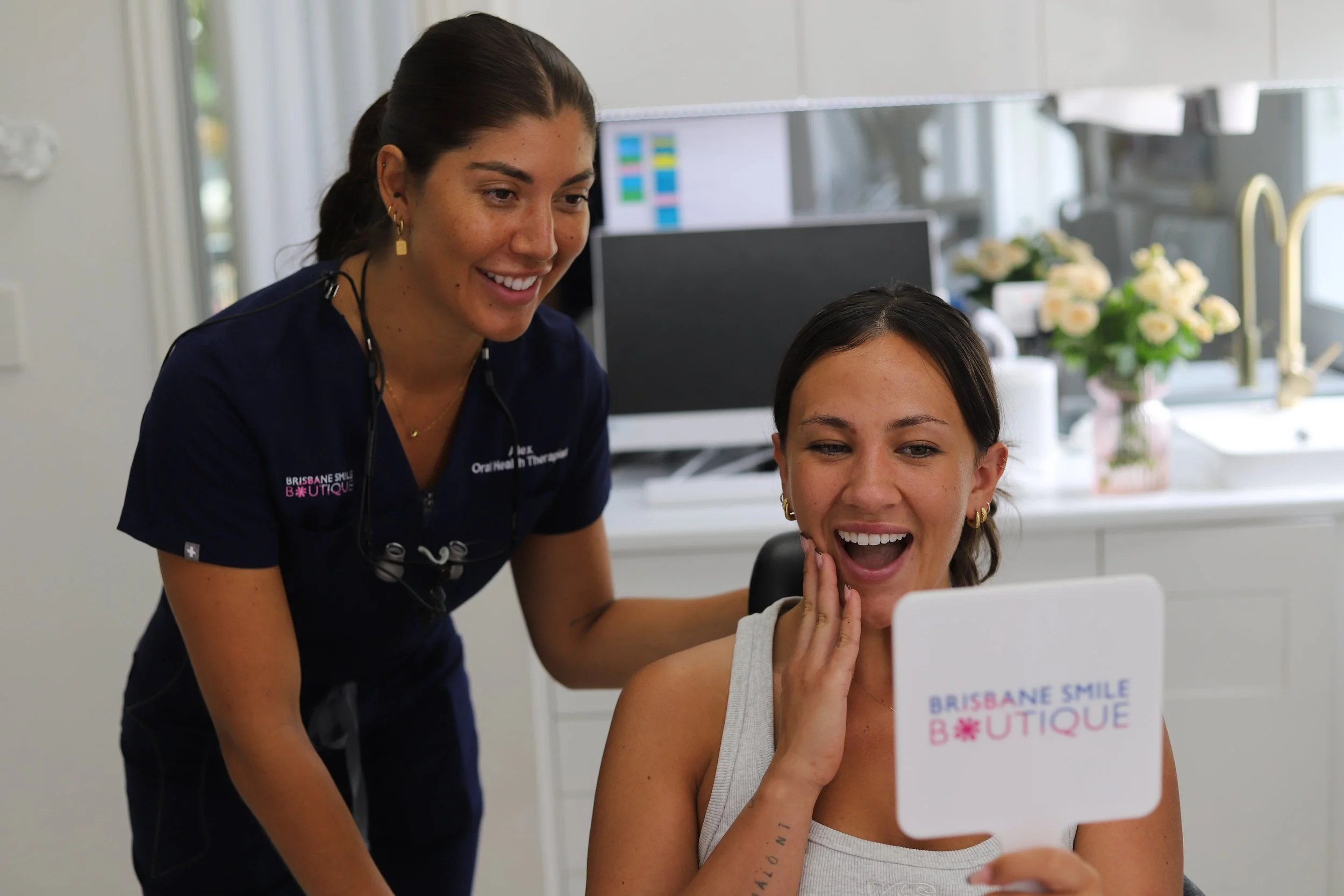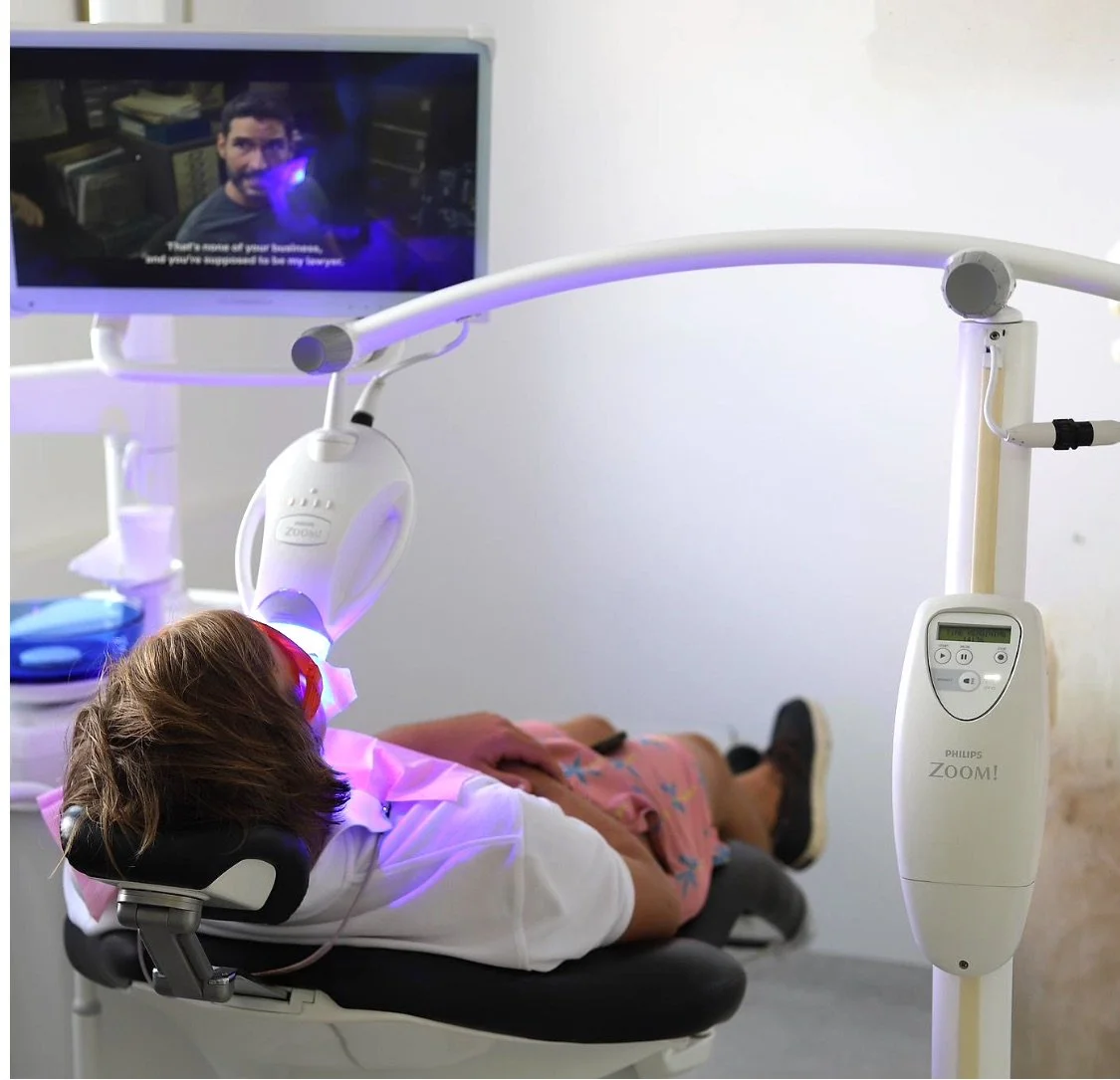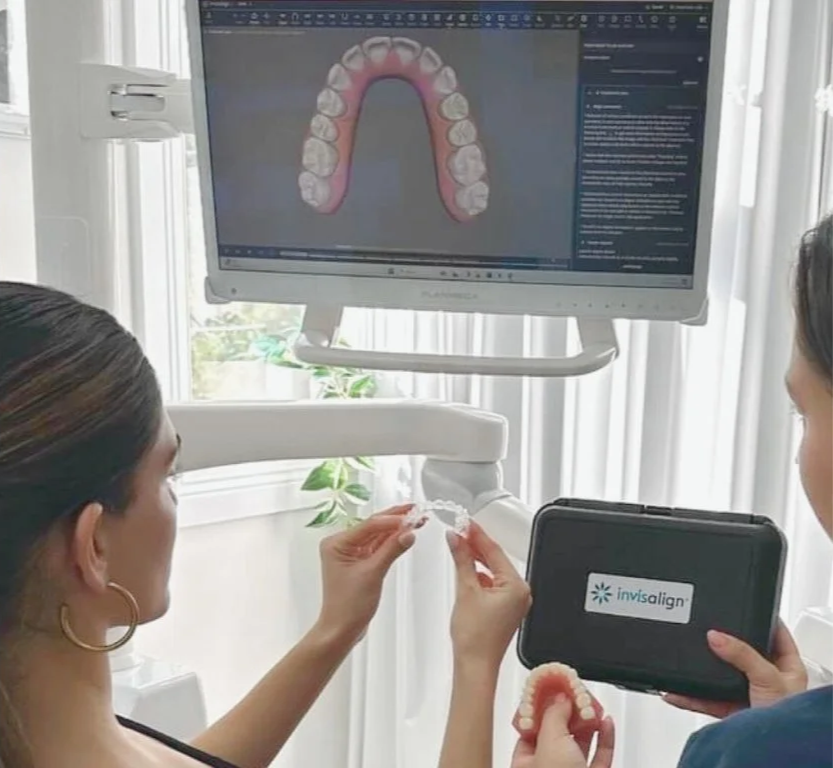Flawless Tooth Bonding for a naturally Beautiful Smile.
One appointment. One confident smile.
Tooth bonding is a quick, affordable, and minimally invasive cosmetic treatment used to repair chips, close small gaps, reshape teeth, or improve discolouration.
Our experienced aesthetic dentists apply a tooth-coloured composite resin, carefully sculpting and polishing it to blend seamlessly with your natural teeth.
At Brisbane Smile Boutique, we combine artistry, precision, and experience to deliver tooth bonding results that are both beautiful and long-lasting.
About Brisbane Smile Boutique
✓ Experienced Aesthetic Dentists
Our team has decades of experience in cosmetic dentistry and understands the fine detail required to craft natural-looking, seamless results.
✓ Customised Smile Design
Every bonding treatment is tailored to your unique facial features, tooth shape, and smile goals — never a one-size-fits-all approach.
✓ High-Quality Materials
We use advanced, durable composite resins that are carefully colour-matched and expertly sculpted to mimic the texture and translucency of natural teeth.
✓ Minimally Invasive Techniques
We focus on preserving your natural tooth structure, using gentle methods that often require no anaesthetic and no drilling.
✓ Same-Day Results
Tooth bonding is typically completed in a single visit, providing an immediate boost to your smile with minimal downtime.
✓ Holistic Smile Philosophy
As Brisbane’s original boutique dental practice, we approach your care with a focus on health, harmony, and aesthetics, creating results that truly elevate your natural beauty.
-
While tooth bonding is a great solution for minor cosmetic improvements, it does have some limitations:
Less durable than porcelain veneers or crowns — bonding is more prone to chipping or wear, especially if you bite hard objects or grind your teeth.
Staining over time — the composite resin can absorb stains from coffee, tea, red wine, or smoking, and it can’t be whitened like natural teeth.
Shorter lifespan — typically lasts 3 to 7 years, depending on oral habits and maintenance.
Not suitable for major damage — bonding is ideal for small chips, gaps, or discolouration but may not be strong enough for large restorations or bite correction.
At Brisbane Smile Boutique, our aesthetic dentists will help you determine if bonding is right for you or if a longer-lasting option like veneers or crowns would be more suitable.
-
Tooth bonding is a popular cosmetic dental treatment for good reason. Some of its key benefits include:
✅ Minimally invasive – Usually requires little to no drilling or enamel removal
✅ Quick results – Often completed in a single appointment
✅ Affordable – More cost-effective than porcelain veneers or crowns
✅ Natural appearance – Resin is colour-matched to blend seamlessly with your natural teeth
✅ Painless procedure – Often performed without anaesthetic
✅ Versatile – Can repair chips, gaps, discolouration, and minor reshaping
✅ Easily repairable – If damaged, bonding can be touched up or replaced without major procedures
At Brisbane Smile Boutique, our experienced aesthetic dentists use tooth bonding to create beautiful, natural-looking results with minimal intervention and maximum comfort.
-
Tooth bonding is a straightforward and minimally invasive procedure. Here’s what you can expect:
Consultation and Shade Matching
Your dentist will assess your smile and select a composite resin colour that matches your natural teeth for a seamless result.Tooth Preparation
The surface of the tooth has a conditioning liquid is applied. This helps the bonding material adhere properly.Application of Composite Resin
A tooth-coloured resin is carefully applied, shaped, and sculpted to the desired form — whether it’s to close a gap, repair a chip, or reshape a tooth.Curing the Material
Once the shape is perfected, a special curing light is used to harden the resin, bonding it securely to the tooth.Polishing and Finishing
The bonded tooth is polished and refined to match the shine and texture of your natural teeth, giving a smooth, natural finish.
The entire process is typically completed in one appointment, often without anaesthetic, and delivers instant cosmetic improvement with little to no downtime.
-
At Brisbane Smile Boutique, tooth bonding treatments range from $400 to $1,200 per tooth, depending on the complexity of the case.
Simple cosmetic enhancements such as reshaping, or repairing minor chips are typically at the lower end of the range. More complex treatments — such as rebuilding an entire tooth from the gum line up, or disguising severely misaligned or missing teeth — require advanced design and technique, and are priced accordingly.
During your consultation, our aesthetic dentists will assess your needs and provide a clear treatment plan with transparent pricing based on the level of detail required to achieve natural, long-lasting results.
Brisbane Smile Boutique has been redefining Dentistry since 2003.
With a Lifetime of trusted Expertise, our Aesthetic Dentists offer expertise in General and Aesthetic Dentistry, creating Exceptional Smiles with Precision, Artistry, and Care.
Connect directly with the Brisbane Smile Boutique Team.
If you could perfect one element of your Smile, what would it be?
Our Dedicated Aesthetic Team at Brisbane Smile Boutique are here to Understand your Vision and would love to assist.
AESTHETIC SMILE ELEMENTS
Tooth Length: Lengthening worn or short teeth with bonding or veneers adds youthfulness. A gum lift can help teeth appear longer.
Tooth Proportions: Balanced smiles follow a 4:5 width-to-length ratio of central incisors. This proportion guides symmetry.
Texture & Character: Veneers and crowns can be designed to reflect light like natural enamel, with customisation for a feminine or masculine smile feel.
Every makeover is planned collaboratively, and delivered by our experienced aesthetic dental team with meticulous attention to detail and patient preferences.





































